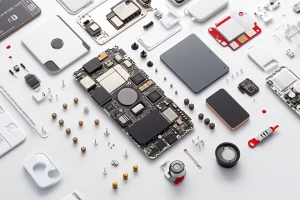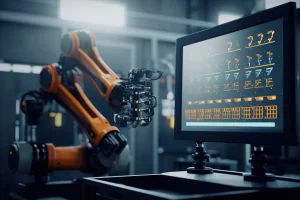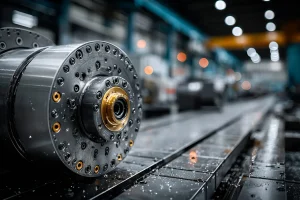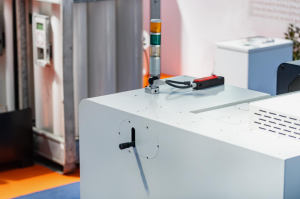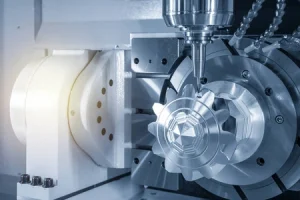El más mínimo descuido durante el procesamiento de la máquina herramienta puede conducir a errores. Below are six processes that can easily cause machining errors.
1. Manufacturing Errors in the Machine Tool
Manufacturing errors in machine tools primarily include spindle rotation error, guideway error, and drive train error.
Spindle rotation error refers to the variation in the spindle’s actual rotation axis relative to its average rotation axis at each instant, directly affecting the accuracy of the workpiece being machined. The main causes of spindle rotation error include spindle coaxiality error, bearing errors, coaxiality errors between bearings, and spindle winding.
Guideways serve as the reference for determining the relative position of machine tool components and the basis for machine tool motion. Manufacturing errors, uneven wear, and poor installation quality are significant contributors to guideway errors.
Drive train error refers to the relative motion error between transmission components at the start and end of the drive train. It is caused by manufacturing and assembly errors within the drive train components, as well as wear during use.
2. Positioning Error
Positioning error primarily includes datum misalignment error and positioning pair manufacturing inaccuracy error.
When machining a workpiece on a machine tool, several geometric features on the workpiece must be selected as positioning datums. If the selected positioning datums do not coincide with the design datums (the datums used to determine the dimensions and position of a surface on the part drawing), datum misalignment error will occur.
The workpiece positioning surface and the fixture positioning elements together form the positioning pair. The maximum positional variation of the workpiece caused by inaccurate positioning pair manufacturing and the clearance between the positioning pairs is called positioning pair manufacturing inaccuracy error.
Positioning pair manufacturing inaccuracy error mainly occurs when machining using the adjustment method, while in trial cutting its influence is relatively smaller.
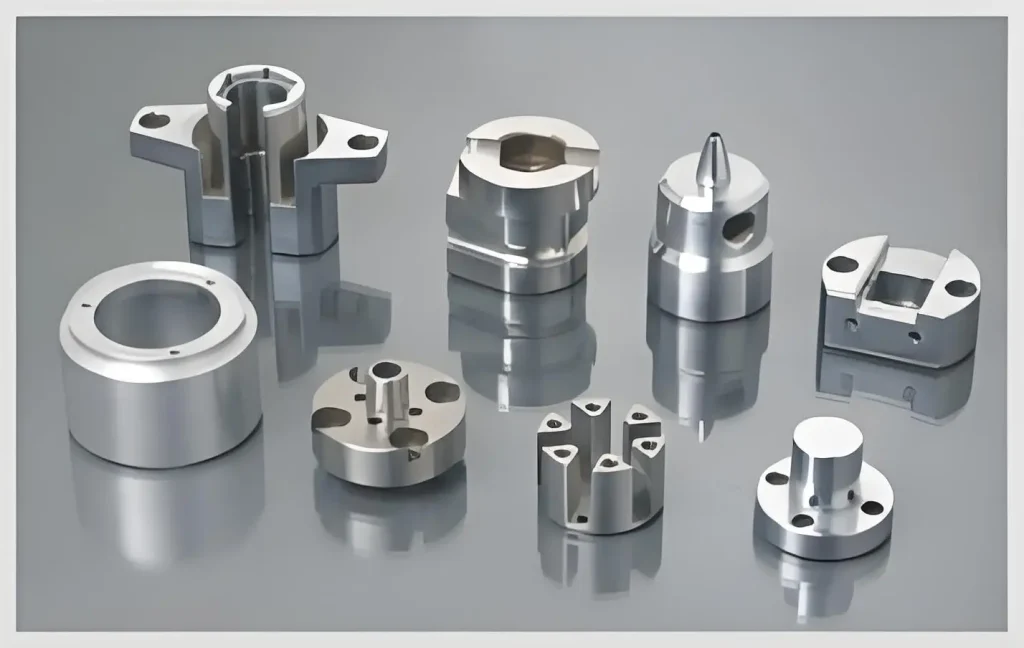
3. Adjustment Error
In every machining process, adjustments of one kind or another are required to the process system. Since adjustments cannot be absolutely accurate, adjustment errors occur.
In the process system, the relative positional accuracy of the workpiece and tool on the machine tool is ensured by adjusting the machine tool, herramienta, fixture, or workpiece. When the original accuracy of the machine tool, cutting tool, fixture, and workpiece blank all meet process requirements without considering dynamic factors, adjustment error plays a decisive role in machining error.
4. Tool Geometric Error
Any cutting tool will inevitably wear during the cutting process, causing changes in the workpiece size and shape.
The impact of tool geometric error on machining error varies with the type of tool: When machining with fixed-size tools, tool manufacturing error directly affects workpiece machining accuracy; for general tools (such as turning tools), manufacturing error does not directly translate into machining error, but it can affect tool cutting performance and wear, thereby indirectly impacting workpiece accuracy.
5. Fixture Geometric Error
The function of the fixture is to ensure the correct position of the workpiece relative to the cutting tool and machine tool. Por lo tanto, fixture geometric error has a significant impact on machining error (especially position error).
6. Measurement Error
When measuring parts during or after machining, measurement accuracy is directly affected by the measurement method, measuring tool accuracy, and both the workpiece and subjective and objective factors.
Measurement errors may include both systematic and random errors, which cannot be completely eliminated but should be minimized through proper methods and instruments.
The six machining errors mentioned above can be avoided to a certain extent. Por lo tanto, machining operators should carefully inspect and verify all possible positions during machining to minimize the impact of these errors.
About RapidEfficient
RapidEfficient specializes in high-precision CNC machining with 18 years of experience. Its products cover medical, communications, optics, drones, intelligent robots, automotor, and office automation parts.
The company’s CNC machining centers include four-axis, five-axis, and linkage machine tools and are equipped with precision projectors, three-coordinate measuring machines, spectrometers, and other precision testing equipment.
Machining accuracy: arriba a 0.01 mm
Testing accuracy: arriba a 0.001 mm

